15 restaurants in Klang Valley offering Muslim-friendly CNY feasts at varying budgets
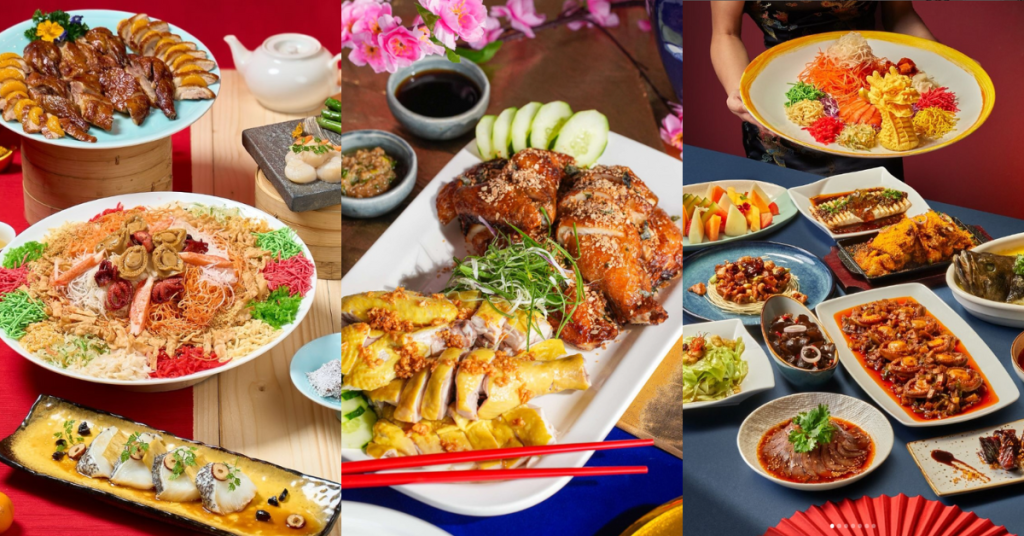
As the lunar new year approaches, it’s time to prepare for one of the most cherished traditions of the Chinese calendar: the reunion dinner.
This event, often regarded as the pinnacle of Chinese New Year celebrations, brings families together over a feast that symbolises prosperity, unity, and good fortune. But multicultural families may struggle to find the ideal spot to celebrate with loved ones who don’t consume pork.
Fear not, as we’ve done the homework for you. For the welcoming of the Year of the Snake, we’ve put together a list of Muslim-friendly restaurants that will leave you and your loved ones satisfied.
Disclaimer: For more discerning diners who prefer to dine at JAKIM halal-certified restaurants, it’s best to call up your restaurant of choice to enquire about their status directly.
1. Tao
Over at the Intercontinental Kuala Lumpur, Tao Chinese Cuisine offers not one, but seven thoughtfully curated menus, catering to every preference. From the vegetarian-friendly Longevity Set to the lavish Fortune Set, there’s something for everyone.
The highlight here is the Kirin-style Roasted London Duck, complemented by Mandarin Orange for a citrusy twist. Equally noteworthy are the Steamed Giant River Prawns with Sea Urchin and Shredded Ginger, and the healthier Waxed Meat Rice made with Canadian Wild Rice.
You can also complete your celebration with one of their five luxurious Yee Sang choices, perfect for tossing to good fortune. Some of the options include Yee Sang with Lobster Meat, Abalone & Mixed Fruits, Yee Sang with Soft-shell Crab & Salmon Skin and Yee Sang with Salmon & Shredded Korean Crystal Pear. These can be ordered in half portions or full portions to suit your group size.
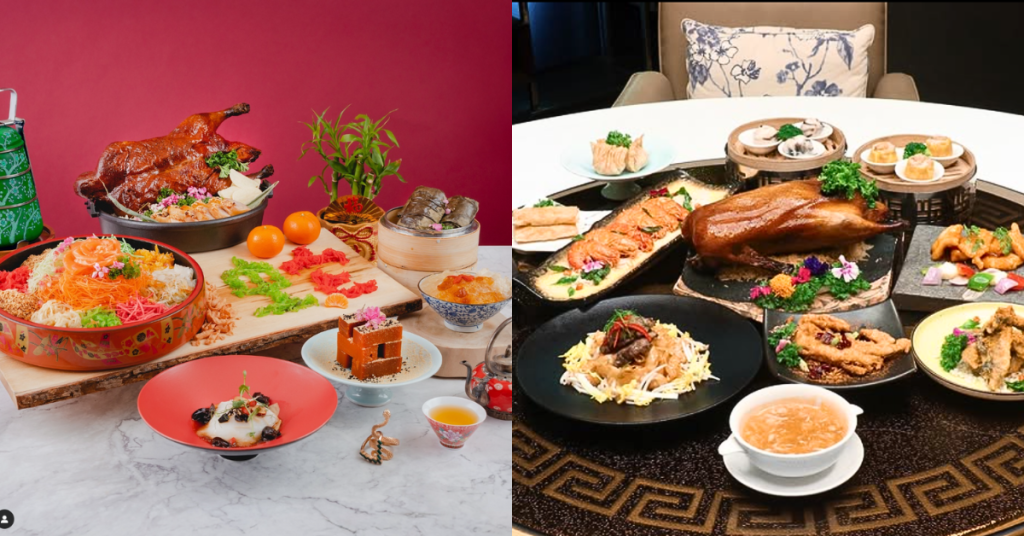
When: From now until February 12, 2025
Sets:
| Mystic Set | – RM588 for two pax – Full menu here |
| Renewal Set | – RM1,188 for four pax – Full menu here |
| Radiance Set | – RM1,688 for six pax – Full menu here |
| Longevity Vegetarian Set | – RM2,088 for 10 pax (current promo at RM1,670.40) – Full menu here |
| Opulent Set | – RM2,988 for 10 pax (current promo RM2,390.40) – Add RM88 for two bottles of Chinese wine – Full menu here |
| Prosperity Set | – RM3,188 for 10 pax (current promo at RM2,550.40) – Add RM88 for two bottles of Chinese wine – Full menu here |
| Fortune Set | – RM4,488 for 10 pax (current promo at RM3,590.40) – Add RM88 for two bottles of Chinese wine – Full menu here |
Reservations: 016-202 4623 / email at fb.lead@ickualalumpur.com.my
2. Jibby Chow
Jibby Chow never disappoints when it comes to curating extravagant meals. Their Abundance Set and Grand Fortune Set are designed to pamper your taste buds. Starting with yee sang—the quintessential toss-to-prosperity dish—diners can opt for the standard salmon or level up with roasted duck, river lobster, or geoduck (additional charges apply).
The Abundance Set offers highlights like double-boiled happiness chicken soup with scallops and Chinese herbs, wok hei crab meat fried rice with black truffle sauce, and crispy tiger prawn with Lisboa sauce. Desserts include chilled mango and pomelo with vanilla ice cream, a sweet note to end the indulgence.
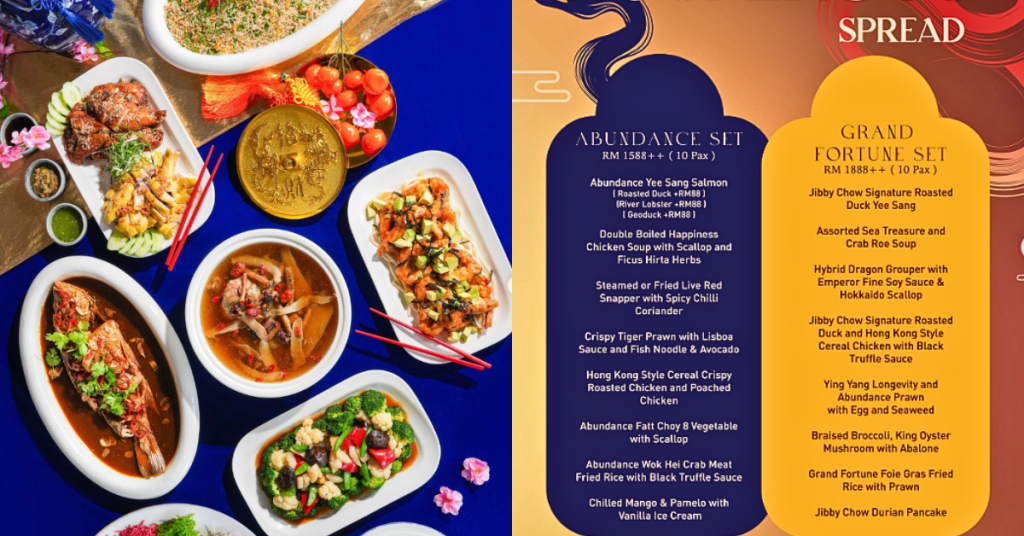
For those going all out, the Grand Fortune Set includes signature dishes like hybrid dragon grouper with emperor soy sauce and foie gras fried rice with prawn. As if that’s not enough, there’s also an indulgent durian pancake dessert.
Sets:
| Abundance Set | – RM1,588++ for 10 pax – Full menu here |
| Grand Fortune Set | – RM1,888++ for 10 pax – Full menu here |
Reservations:
- Bangsar Village II: 03-2201 8551 / 010-201 7466
- Elmina Lakeside Mall: 03-8309 2395 / 011-2610 7970
3. Amber Chinese Muslim Restaurant
Amber caters to everyone, offering five different set menus ranging from RM699 to RM1,699 for 10 pax. The menus include a variety of crowd-pleasers such as roasted lamb, tiger prawns, and jellyfish yee sang. Higher-tier sets step it up with kampung chicken and grouper fish.
To dine here, two days’ advance booking is required.
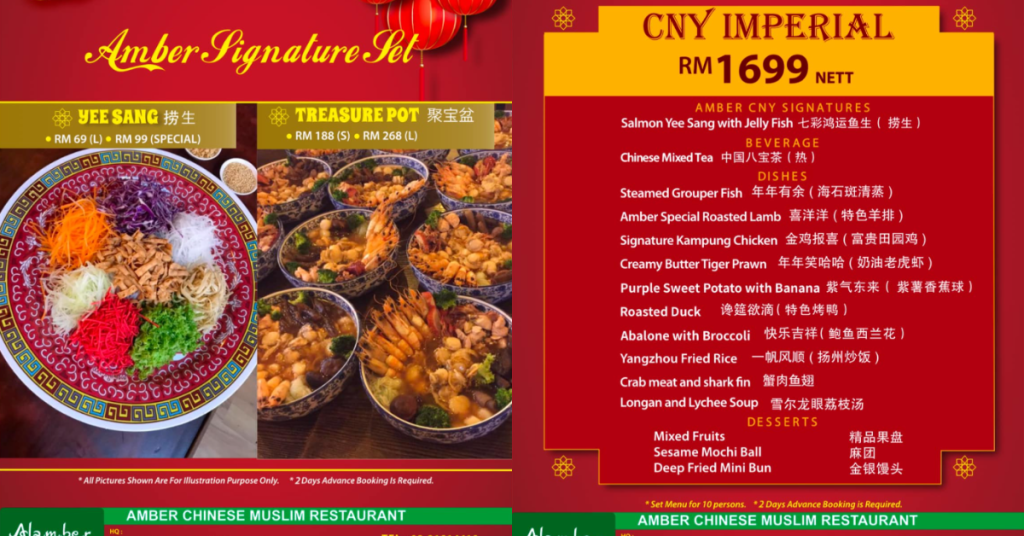
Sets:
| Amber Signature Set 1 | – RM699 for 10 pax – Full menu here |
| Amber Signature Set 2 | – RM899 for 10 pax – Full menu here |
| Amber Signature Set 3 | – RM1,099 for 10 pax – Full menu here |
| Amber Signature Set 4 | – RM1,299 for 10 pax – Full menu here |
| Amber Signature Set 5 | – RM1,699 for 10 pax – Full menu here |
Reservations: 03-2181 4410 / 03-2202 8839
4. Ruyi & Lyn
Nestled in Bangsar Shopping Centre, Ruyi & Lyn offers a dining experience as extravagant as its 22,000 sq ft venue. With prices starting at RM178 (per pax) to RM3,388 (10 pax), there’s a set for every party size.
Signature dishes like braised 5-head abalone with sea cucumber and their Instagram-worthy soft shell crab yee sang make this menu a must-try. And for dessert, they have double-layered milk curd paired with Japanese mochi—a perfect blend of modern and traditional sweetness.
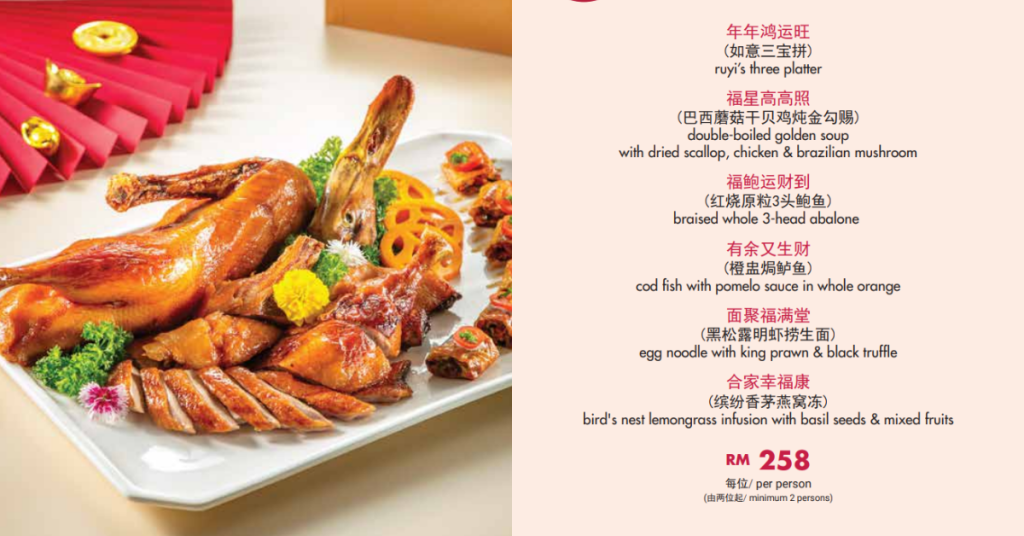
Sets:
| CNY Individual Set 1 | RM178 per pax |
| CNY Individual Set 2 | RM258 per pax |
| CNY Celebration Set | RM588 for four pax |
| CNY Gourmet Celebration Set 1 | RM1,688 for 10 pax |
| CNY Gourmet Celebration Set 2 | RM2, 088 for 10 pax |
| CNY Gourmet Celebration Set 3 | RM2,688 for 10 pax |
| CNY Gourmet Celebration Set 4 | RM3,388 for 10 pax |
You can find the full menu for all the sets here.
Reservations: 03-2083 0288
5. Homst
Homst’s five Chinese New Year sets, priced between RM729 and RM1,050 for 10 pax, bring halal Chinese cuisine to the forefront. Signature dishes include clay pot lamb with BBQ sauce and steamed grouper with lemon sauce. Vegetarian, salmon, and jellyfish yee sang ensure every diner is catered for.
Established in 2002, Homst Restaurant is often said to be one of the pioneers of Chinese Muslim cuisine in KL. With nine outlets, it’s an ideal choice for families seeking consistent quality and cosy atmospheres.
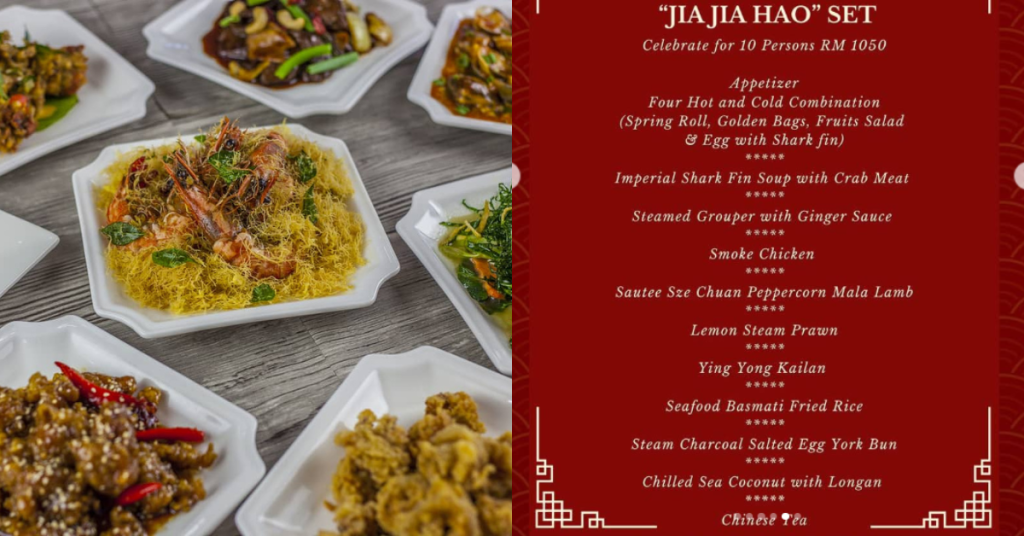
Sets:
| Tian Tian Hao Set | – RM729 for 10 pax – Full menu here |
| Wan Shi Ru Yi Set | – RM835 for 10 pax – Full menu here |
| Bu Bu Gao Shen Set | – RM835 for 10 pax – Full menu here |
| Sheng Yi Xing Rong Set | – RM1,050 for 10 pax – Full menu here |
| Jia Jia Hao Set | – RM1,050 for 10 pax – Full menu here |
Reservations:
- Homst Setia Alam: 012-570 0615
- Homst Kg Baru: 012-570 0784
- Homst Kajang: 012-570 0319
- Homst TTDI: 012-570 0342
- Homst Shah Alam: 012-570 0261
- Homst Cyberjaya: 012-5700 152
- Homst Bangi: 012-570 0475
- Homst Putrajaya: 012-570 0248
- Homst Wangsa Maju: 014-205 8929
6. Mohammad Chow
Mohammad Chow is a family-founded gem in Damansara that has been serving delightful comfort food since 2013. Over the years, it has gained loyal fans, made appearances on TV, and been nominated for several foodie awards.
So, it’s no surprise Mohammad Chow has become a go-to for families and groups looking to enjoy classic Chinese dishes with a Muslim-friendly twist.
This Chinese New Year, Mohammad Chow is turning up the festive vibes with their Prosperity Set, crafted for a joyful celebration with loved ones.
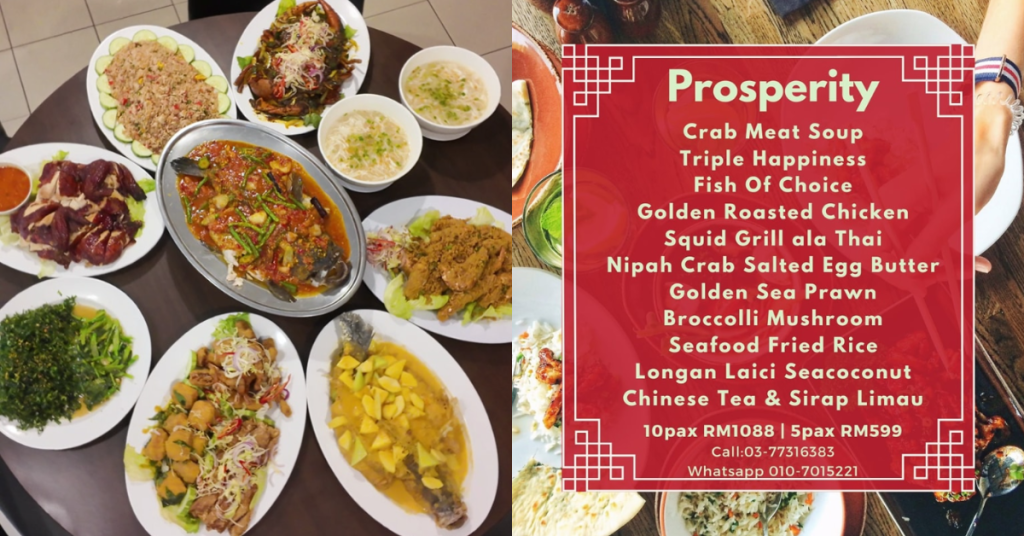
Here are some mouthwatering dishes on the menu that you might not want to miss: Crab Meat Soup as an appetiser, for mains, you can indulge in a choice of fish, crispy and juicy Golden Roasted Chicken, a festive favourite. Add some zest to your meal with the Squid Grill ala Thai and savour the luxurious Golden Sea Prawn.
Sets:
| Prosperity Set | – RM599 for five pax – RM1,088 for 10 pax – Full menu here |
Reservations: 03-7731 6383 / 010-701 5221
7. Chopsticks Asia Restaurant
Located in TTDI, Chopsticks Asia is a modern halal Chinese restaurant known for its fuss-free dining experience. This spot has become a favourite among locals, thanks to its friendly staff, speedy service, and delicious Chinese dishes served in generous portions. Perfect for celebrating Chinese New Year with loved ones, Chopsticks Asia is offering two special set menus this year.
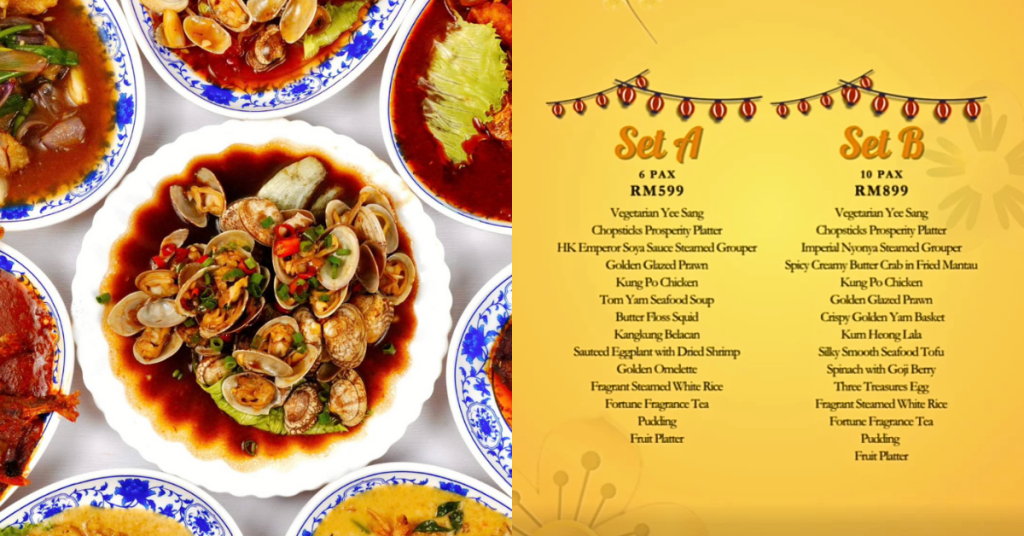
Both sets come with a vegetarian yee sang, a light and refreshing starter to kick off the festivities. The star dishes in these menus include the Chopstick’s Prosperity Platter, a delightful medley of flavours; Nyonya Steamed Grouper, which is tender and fragrant; the crowd-pleasing Butter Floss Squid, and the indulgent Spicy Creamy Butter Crab with Fried Mantou, ideal for soaking up every bit of the flavourful sauce.
Sets:
| Set A | RM599 for six pax |
| Set B | RM899 for 10 pax |
You can find the full menu for both sets here.
Reservations: 019-777 9635
8. Muhibbah Seafood Restaurant
If there’s one thing no traditional Chinese meal can go without, it’s seafood—and Muhibbah Seafood Restaurant delivers just that, with extra flair.
Known for its fresh seafood and large, comfortable seating arrangements, this spot is made for family dinners or catching up with friends. The spacious setup, complete with big round tables, sets the tone for a memorable Chinese New Year reunion.
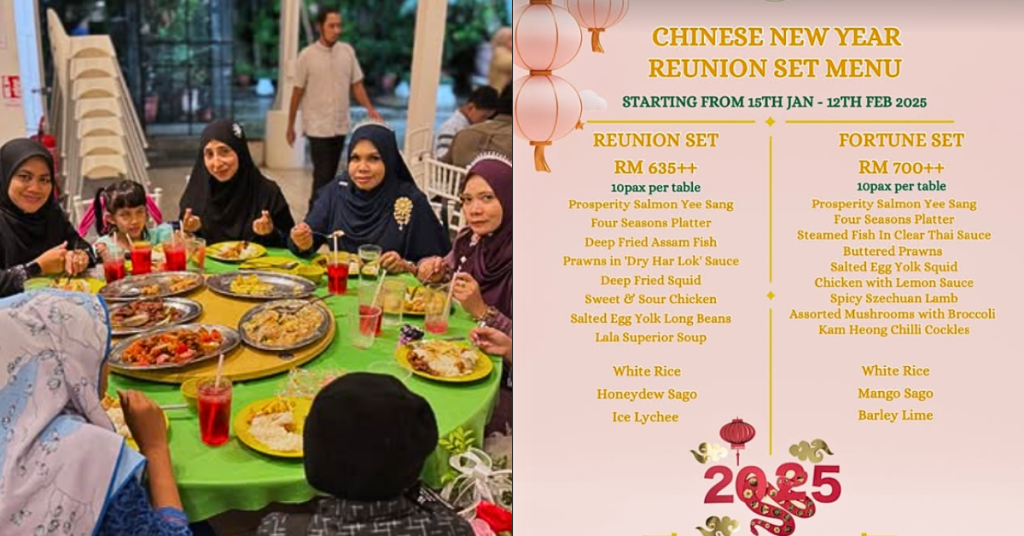
Muhibbah’s menu brings together traditional Chinese flavours with a hint of Thai influence, offering a delicious twist on classics.
Some highlights from their festive set menus include the Yee Sang with Salmon, a must-have for tossing good fortune, Deep-Fried Fish Miang Style, and the flavourful Spicy Szechuan Lamb. You’ll also find other delightful dishes like Salted Egg Yolk Long Beans and the aromatic Kam Heong Chili Cockles to round out the feast.
Sets:
| Reunion Set | RM635++ for 10 pax |
| Fortune Set | RM700++ for 10 pax |
| Auspicious Set | RM735++ for 10 pax |
| Prosperous Set | RM935 ++ for 10 pax |
You can find the full menu for all the sets here.
Reservations: 011-1140 3153 / 018-396 2090 / 016-201 2969
9. Abah Seafood & Grill Restaurant
Known for its Muslim-friendly live seafood and versatile event space, Abah Seafood & Grill Restaurant in PJ is a go-to for gatherings with family and friends.
This year, Abah Seafood is serving two delightful CNY sets priced at RM988 and RM1,388, both designed for a table of 10. Both sets kick off with a festive Salmon and Jellyfish Yee Sang, a fresh and flavourful way to welcome good fortune.
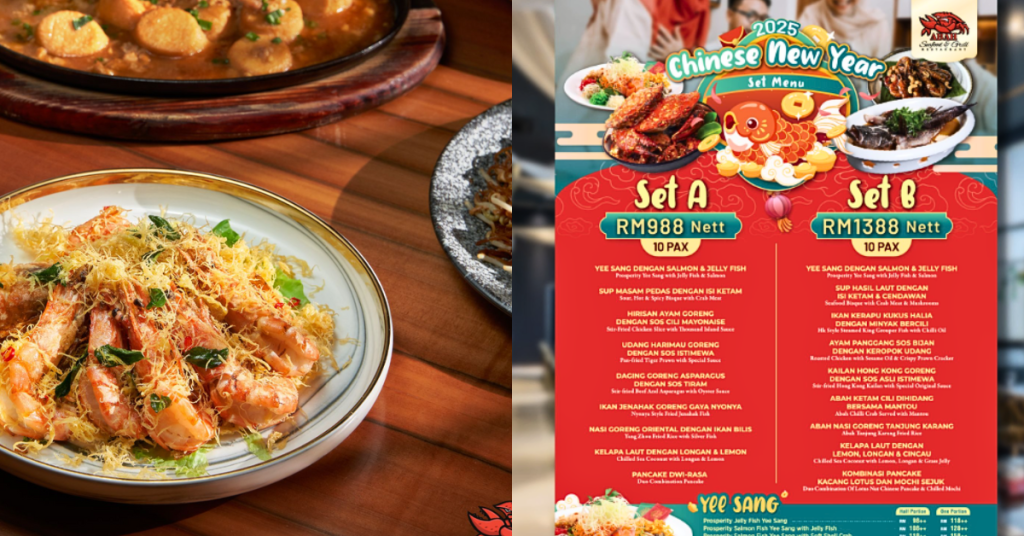
The menu highlights don’t stop there—expect mouthwatering dishes like Nyonya-Style Fried Jenahak Fish, Chili Crab with Mantou, and the comforting Seafood Bisque with Crab Meat and Mushroom. For dessert, enjoy a dual combination of Lotus Nut Chinese Pancake and Chilled Mochi.
Sets:
| Set A | RM988 for 10 pax |
| Set B | RM1,388 for 10 pax |
You can find the full menu for both sets here.
Reservations: 014-924 4486
10. Mohd Chan
If you’re craving Cantonese cuisine this festive season, Mohd Chan is the spot to satisfy your taste buds. With over 10 outlets across Klang Valley, this well-known restaurant chain has built a reputation for its delicious Cantonese-style dishes that cater to Muslims.
For this Chinese New Year, Mohd Chan presents three delightful set menus to bring joy and prosperity to your celebrations. These sets feature Cantonese staples, focusing on seafood and poultry dishes. Highlights include comforting homecooked-style flavours that reflect the restaurant’s dedication to authenticity and quality.
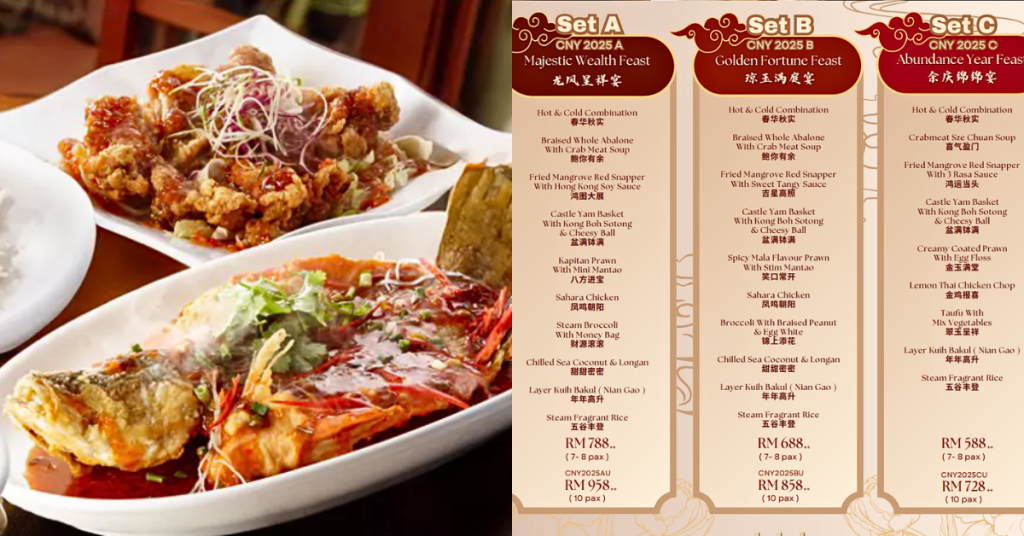
Sets:
| Majestic Wealth Feast | RM588++ for seven to eight pax |
| Golden Fortune Feast | RM688++ for seven to eight pax |
| Abundance Year Feast | RM788++ for seven to eight pax |
You can find the full menu for all the sets here.
Reservations: 03-7887 0600
11. Shang Palace
Nestled within Shangri-La Kuala Lumpur, Shang Palace is synonymous with elegance and stellar Chinese cuisine. Their Chinese New Year set menus are no exception, offering eight- and nine-course feasts aptly named Great Prosperity and Immense Wealth.
The star of the show? Their Double-Boiled Chicken Soup with Chinese Herbs is a heartwarming dish that balances tradition and taste. Equally impressive is the Steamed Soon Hock Fish, a classic symbol of abundance. Not only that, the Braised Abalone with Sea Moss and Dried Seafood brings a luxurious touch to the table.
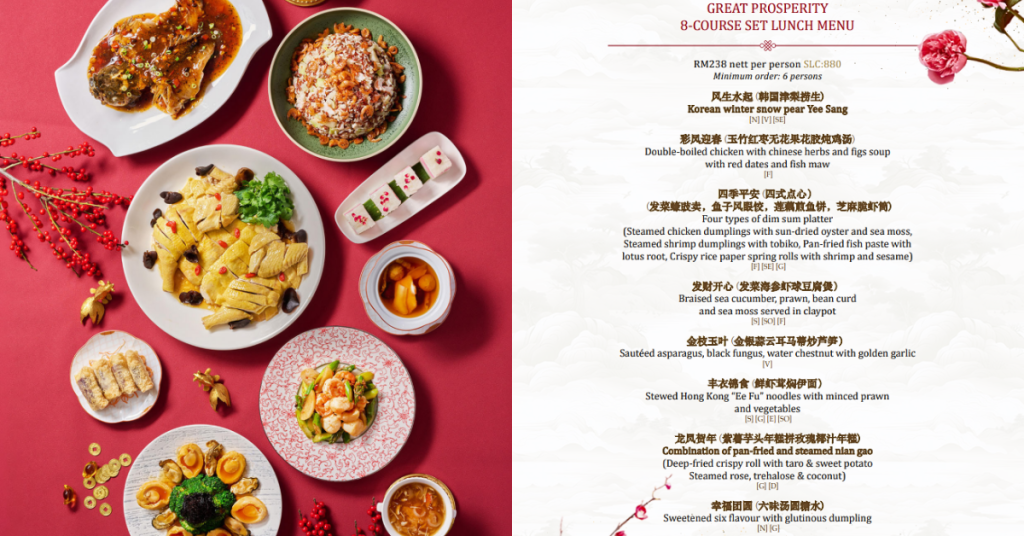
For a sweet finale, the Pan-Fried Nian Gao offers a delightful twist on the traditional sticky rice cake. And for those with larger reunions, Shang Palace simplifies things with à la carte and dim sum menus from January 29 to 31.
When: From now until February 12, 2025
Sets:
| Immense Wealth | Nine-course meal RM428 per pax (minimum 10 pax) |
| Wealth Treasures | Nine-course meal RM398 per pax (minimum 10 pax) |
| Rich Fortune | Eight-course meal RM328 per pax (minimum six pax) |
| Double Happiness | Eight-course meal RM298 per pax (minimum four pax) |
| Happy Reunion | Eight-course meal RM288 per pax (minimum six pax) |
| Best Wishes (Vegetarian set) | Eight-course meal RM 228 per pax (minimum two pax) |
You can find the full menu for all the sets here.
Reservations: 03-2032 2388 / dining.kl@shangri-la.com
12. Sunway Resort Hotel
For a more theatrical affair, head to Sunway Resort Hotel. At the Grand Ballroom, the evening starts with a toss of Norwegian Salmon Yee Sang and moves into an extravagant eight-course menu featuring Sea Moss Abalone En Croute and Steamed Whole Mangrove Jack Snapper.
Over at the Sunset Terrace, a curated menu includes highlights like Typhoon Shelter Tiger Prawns and Stuffed Whole Chicken with Sea Cucumber and Fish Maw. Adding to the atmosphere are live performances, calligraphy sessions, and a visit from the God of Wealth.
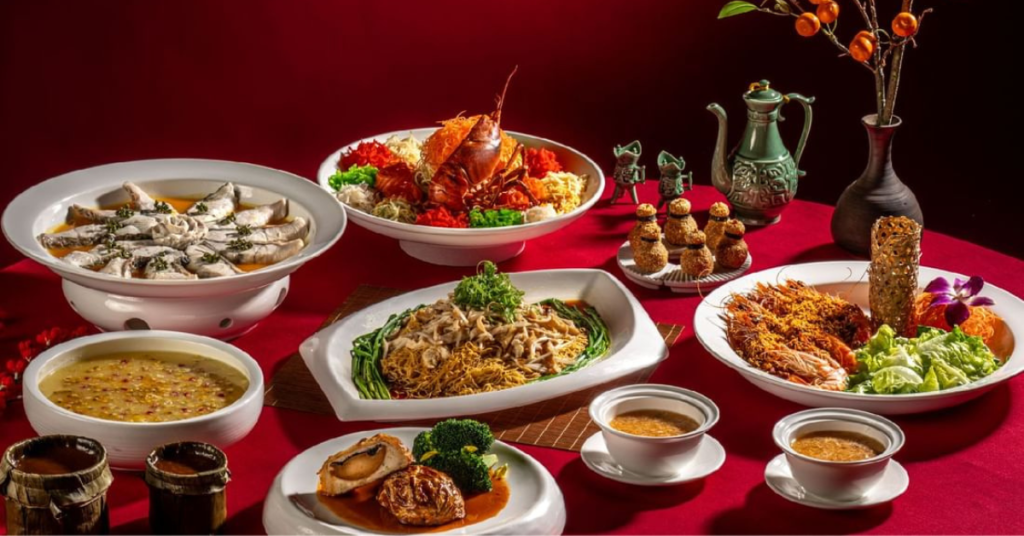
Sets:
| Eight-course Reunion Dinner Set at the Grand Ballroom | – RM1,728+ for six pax – RM2,688+ for 10 pax – When: January 28, 2025 |
| Eight-course CNY Dinner Set at Sunset Terrace | – RM2,688 for 10 pax – When: From now until February 12, 2025 |
| Lunar New Year Buffet at Sunset Terrace | – Price varies by time and date – When: From now until February 12, 2025 |
You can find the full menu for all the sets here.
Reservations: Website / 03-7495 2009 / 019-381 5568 (WhatsApp)
13. Jade Pavilion
Jade Pavilion at Pavilion Hotel Kuala Lumpur promises an opulent celebration with its Fortune and Prosperity set menus. Seasonal staples like Braised Premium Dried Seafood Pot and Steamed Wild-Caught Soon Hock Fish make an appearance, but the real showstopper is the Slow Oven Roasted Duck with Black Summer Truffle Sauce.
Yee sang lovers will appreciate the variety, including the Salmon Yee Sang with Octopus and Organic Heirloom Cherry Tomato. For an extra dose of prosperity, opt for the Salmon Yee Sang with 16-Head Abalone and Alaskan Scallop.
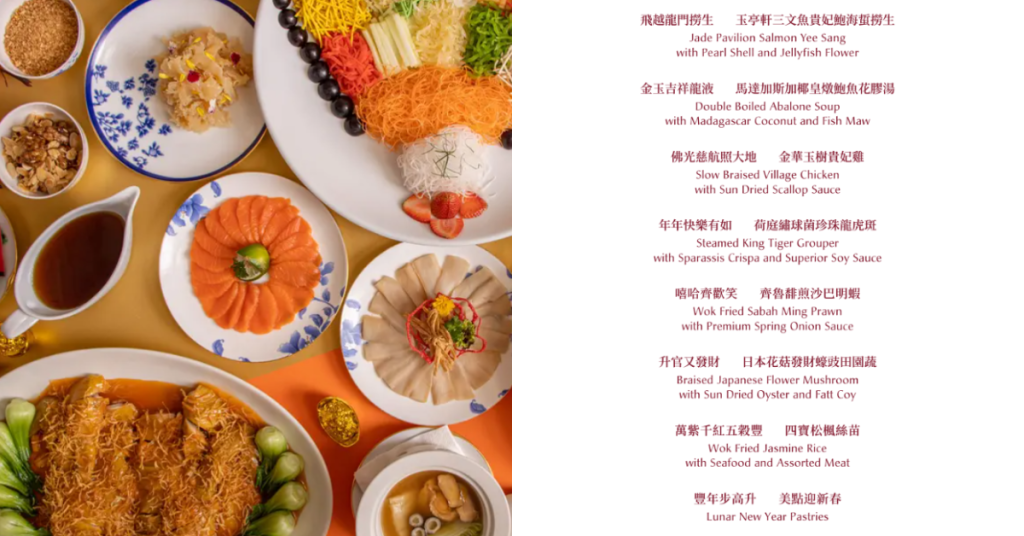
When: From now until February 28, 2025
Sets:
| Prosperity Set | RM238 per pax |
| Fortune Set | RM328 per pax |
You can find the full menu for both sets here.
Reservations: Website
14. Sichuan Kitchen
For those who crave spice, the Sichuan Kitchen at Four Points by Sheraton Kuala Lumpur is the place to be. With three menu options ranging from the Exclusive Private Dining Room Set to the Prosperity Hot Pot Set, diners can expect dishes like Sichuan Fragrant Spicy Stir-Fried Crab and Chinese Yam with Blueberry Sauce.
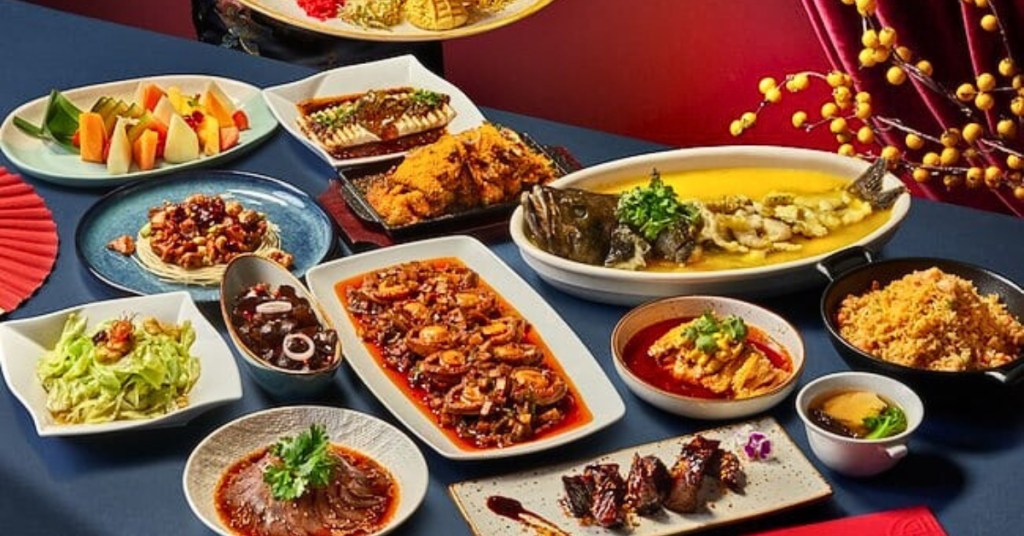
When: From now until February 12, 2025
Sets:
| 18-course Exclusive Private Dining Room Set Menu by Chef Justin Song | – RM2,588 per table (10 to 14 pax) – Full menu here |
| 12-course Auspicious Individual Set | – RM228 per pax (minimum four pax) – Full menu here |
| Prosperity Hot Pot Signature Set 1 | – RM138 per pax (minimum two pax) – Full menu here |
| Prosperity Hot Pot Premium Set 2 | – RM168 per pax (minimum two pax) – Full menu here |
Reservations: Website / 03-2706 9099
15. Element Kuala Lumpur
Element Kuala Lumpur keeps things simple yet sophisticated with two nine-course menus: Auspicious Set and Prosperous Set.
Featuring healthier options like Yee Sang with Fresh Fruits and classic dishes like Steamed Fish (choose between Grouper or Red Snapper), these menus cater to a diverse audience.
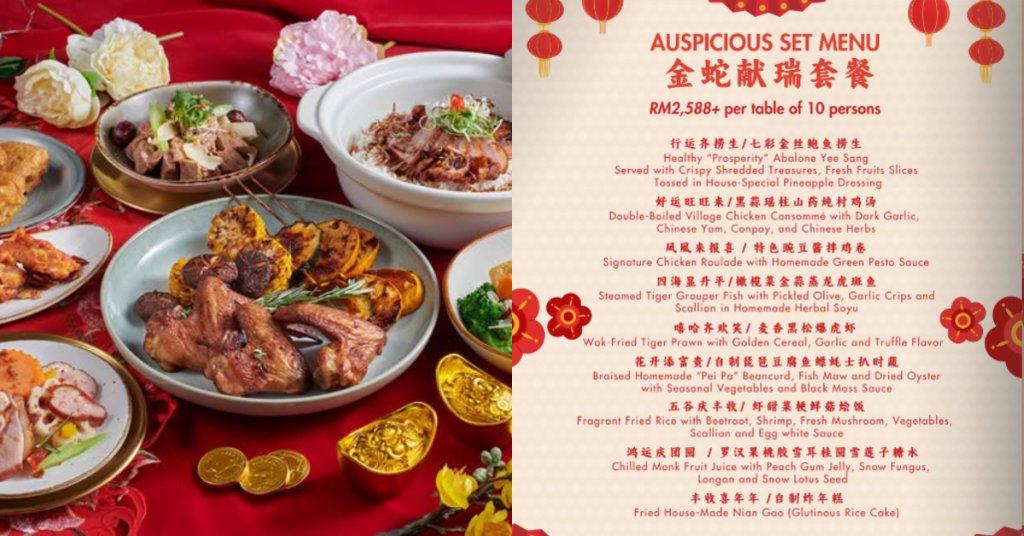
Those who are interested will need to make a reservation three days in advance, with a minimum of three tables that can accommodate 10 pax each.
When: From now until February 12, 2025
Sets:
| Auspicious Set | RM 2,588+ per table for 10 pax |
| Prosperous Set | RM 2,388+ per table for 10 pax |
You can find the full menu for both sets here.
Reservations: 03-2771 3382 / email at dl-kulelsales@marriott.com
-//-
Whether you’re drawn to the luxurious offerings, the health-conscious creations, or the fiery delights, there’s no shortage of Muslim-friendly options this Chinese New Year.
As we toss our yee sang high and embrace the festive spirit, one thing’s for certain: a great meal is the perfect way to welcome the year ahead.
- Read other articles we’ve written about F&B businesses here.
Also Read: Inside the exclusive programme for startups by Grab Malaysia, GXBank leaders & Endeavor Malaysia
Featured Image Credit: Tao Chinese Cuisine / Jibby Chow / Sichuan Kitchen
Former foodpanda Malaysia CEO’s juice brand secures US$1 million in seed funding
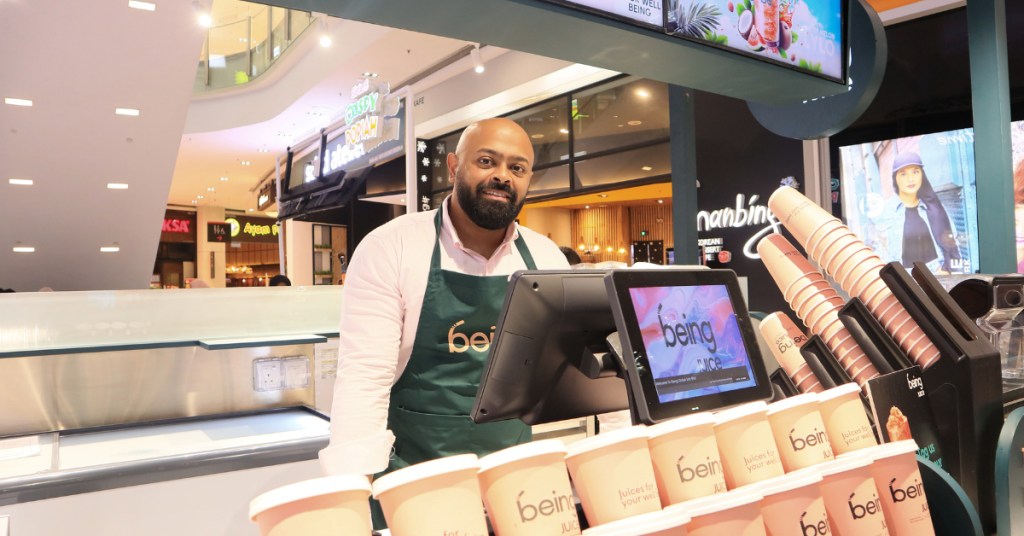
A new Malaysian juice contender, Being Juice, has raised US$1 million in a seed funding round led by multi-stage venture capital firms 500 Global and BEENEXT.
Being Juice was founded by Sayantan Das, who was previously the CEO of foodpanda’s operations in Malaysia and Brunei. He left his post in November 2023.
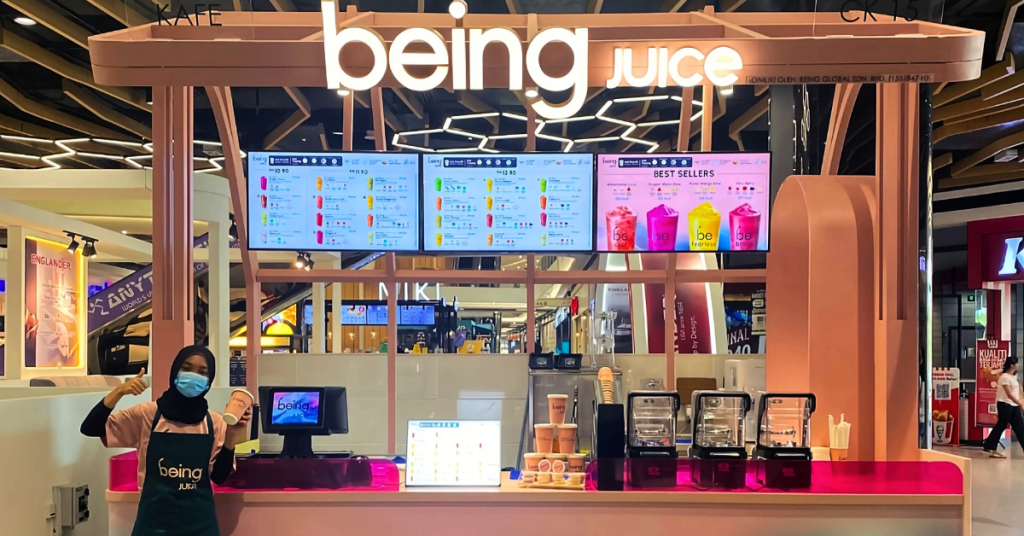
“Being Juice’s seed funding round is a huge milestone for us, especially since it has connected us to investors who believe in what we’re building,” Sayantan shared in a press release.
The juice startup was launched in April 2024, offering smoothies made from 100% real fruits and vegetables.
In less than a year, Being Juice has already established its presence in the Klang Valley with six outlets at the time of writing. Many are located in high-traffic malls such as NU Sentral and Atria Damansara.
It currently offers over 16 unique flavour combinations, designed to “celebrate the vibrant Southeast Asian palate without compromise.”
Rapid expansion plans
The fresh funds will go towards accelerating the brand’s local and regional expansion plans, with 30 new stores expected to open across Malaysia in 2025.
It already has plans to debut its first overseas outlet in the Philippines this month.

Besides expanding its market presence, Being Juice is also in the process of developing its own mobile app.
“Currently under continuous improvement, the app aims to offer a seamless user experience, with the goal of fostering a loyal community across markets,” a press release stated.
As part of its ongoing growth, Being Juice is working on refreshing its look and feel to further elevate the brand.
Juicing things up
With homegrown beverage chains such as Tealive and ZUS Coffee finding major success locally and abroad, Being Juice might just be the next big thing that will spice up Malaysia’s drinks scene.

That said, juice has always been quite an accessible product in Malaysia. From well-established global players such as Boost Juice to local brands like Juice Works, businesses of this nature have already been around for a long time.
With that in mind, we’re excited to see how Being Juice plans to tackle the industry with its natural offerings, especially with its VC backing.
Also Read: 5 insider insights from Cradle’s PLUGIN conference that M’sian entrepreneurs should know
Featured Image Credit: Being Juice
Survival of the fittest: Meta & Microsoft to lay off underperforming staff to “raise the bar”

It looks like 2025 is set to be another tough year for big tech.
According to recent reports, Meta plans to cut its workforce by 5%, while Microsoft is preparing to lay off a small percentage of its employees.
Both tech giants have expressed intentions to retrench their lowest performing employees. Though it’s unclear how many Singapore-based staff are impacted for both of these companies, here’s what we know so far:
Moving “low performers” out of Meta

Meta CEO Mark Zuckerberg informed employees of the decision to “move out low performers faster” through an internal memo posted on the company’s internal Workplace forum on Tuesday (January 14).
As Meta positions itself for “an intense year,” it is “raising the bar on performance” through performance-based eliminations. This will affect 5% of its staff, which accounts for roughly around 3,600 jobs.
This is going to be an intense year, and I want to make sure we have the best people on our teams. I’ve decided to raise the bar on performance management and move out low performers faster.
Mark Zuckerberg, CEO of Meta
US-based employees affected by the cuts will be notified by February 10, with those outside of the US notified at a later date. Zuckerberg added that the company would “provide generous severance,” following past practices in previous layoff rounds.
Responding to a media enquiry by Vulcan Post, a spokesperson shared that the impacted roles would be backfilled in 2025. However, they have declined to comment further.
The cuts represent Meta’s largest layoffs since it eliminated 21,000 jobs, or nearly a quarter of its workforce, between 2022 and 2023.
Hiring freezes at Microsoft

Last Wednesday (January 8), Microsoft confirmed to CNBC that it would cut a small percentage of jobs across departments based on performance. The job cuts will affect less than 1% of employees.
Vulcan Post also reached out to the tech company for comment, where a spokesperson shared that they are unable to share specific locations of impact. However, they clarified that Microsoft “typically backfills roles” when employees leave due to performance reasons.
At Microsoft, we focus on high-performance talent. We are always working on helping people learn and grow. When people are not performing, we take the appropriate action.
Microsoft’s spokesperson
That said, according to recent reports, Microsoft also announced a hiring freeze for its consulting arm in the US, as part of a broader effort by the company to reduce costs.
Consulting executive Derek Danois notified employees in an internal memo that the division will hold off on hiring new employees and back-filling roles, emphasising that careful management of costs is of utmost importance.
The memo also instructed employees not to expense travel for any internal meetings and to use remote sessions instead.
In early 2023, Microsoft laid off 10,000 employees, primarily those in its engineering department, as the company grappled with a broader shift in the market and economy.
In January 2024, it laid off 1,900 jobs from its gaming unit after acquiring American video game holding company Activision Blizzard.
- Read other articles we’ve written about tech giants here.
Also Read: From Lazada to Amazon: Here is a list of companies laying off in 2024, including in S’pore
Feature Image Credit: Adobe Stock
M’sia’s latest digital bank by YTL-Sea wants to stand out by having a ChatGPT-styled chatbot

If you’ve ever wondered if banking could be as easy as sending a text, then you might be interested in Ryt Bank and its ChatGPT-like chatbot—Ryt AI.
A joint venture between YTL Digital Capital Sdn Bhd (YTL) and Sea Limited (Sea), Ryt Bank aims to redefine banking in Malaysia by incorporating artificial intelligence (AI) into its platform. It is the latest digital bank to secure a digital banking licence from The Ministry of Finance.
Based on the latest press release, Ryt AI is a personalised and AI-powered private banker designed to simplify banking services, deliver tailored financial insights, and manage advanced savings strategies.

One example of Ryt AI in action is its advanced fund transfer feature. Users can initiate and complete fund transfers by simply sending a prompt to Ryt AI, similar to how you would use ChatGPT.
In a video shared with the press release, it’s shared that Ryt AI is able to extract key information from photos, such as screenshots. It will then send a text to double confirm the information before proceeding with the funds transfer. If there are any incorrect details, users are able to make amendments as well.

Ryt Bank also teased other ways Ryt AI can be used in near future, including:
- Creating a save “pocket” (which we deduce is a savings account)
- Managing transfer limits
- Setting monthly or annual savings goals (e.g. to save RM10,000 in a year)
- Scanning QR codes from albums and transfer
- Setting a recurring transfer
- Viewing spending insights
- A balance prediction for the end of the year
The idea is that this would help save the time taken to log into your banking account and perform all these tasks. “This streamlined approach [also] ensures accessibility for a diverse range of users, supporting multiple languages to meet their needs,” stated Melvin Ooi, Ryt Bank’s CEO.
“By harnessing the power of artificial intelligence (AI) to provide an unequalled customer experience, we will deliver financial services that are meaningful and inclusive while helping customers achieve their financial goals.”
AI integration is cool, but is there anything we should be concerned about?
This question is one that we’re sure a good handful of Malaysians are asking. After all, banking is a private affair and adding artificial intelligence into the mix might scare some more sceptical users off, particularly if you like handling finances the traditional way.
To address the sceptics, Ryt Bank assures that it places security and transparency at its core.
The digital bank and its AI feature will come with advanced encryption, multi-layer security, biometric face-matching verification, real-time fraud monitoring, and PIDM protection up to RM250,000 for each depositor.

“Ryt Bank’s services also come with no hidden fees, reflecting the bank’s commitment to honesty and trustworthiness,” the press release noted.
However, there is still the concern of how user data will be collected, stored, and used. What happens if there was a breach of sensitive information, what are the repercussions?
AI algorithms could also perpetuate biases if the training data isn’t large enough, which has the potential of leading to discrimination in other financial services such as loan approvals and credit scoring.
Lastly, there’s the argument that banking should have some form of human touch. As a user, I’m more inclined to trust an actual professional to perform financial services, especially if it’s dealing with large sums of money and other concerns.
While Ryt Bank has reassured that customers will be supported by 24/7 assistance, I’m curious as to how fast they’ll get back with more serious, time-sensitive issues.
-//-

As one of five consortiums that got a digital banking licence from Bank Negara Malaysia, Ryt Bank plays a role in the country’s ambition of meeting the banking needs of the population. According to PwC, about 15% of the local adult population remained underserved and underbanked in 2023.
Ryt Bank received the Ministry of Finance’s approval to commence operations from December 20, 2024. To ensure a smooth rollout, the digital bank will be launched in phases to the public.
With YTL and Sea having global track records in their respective fields, Ryt Bank is set to become a Malaysian banking force.
For context, YTL has 70 years of corporate experience in industries like utilities, construction, and hospitality. On the other hand, Sea is a major global consumer internet company behind Garena, SeaMoney, and Shopee.
Also Read: 5 insider insights from Cradle’s PLUGIN conference that M’sian entrepreneurs should know
Featured Image Credit: Ryt Bank
Is complementary medicine actually legit? We busted 7 myths about the field in M’sia.
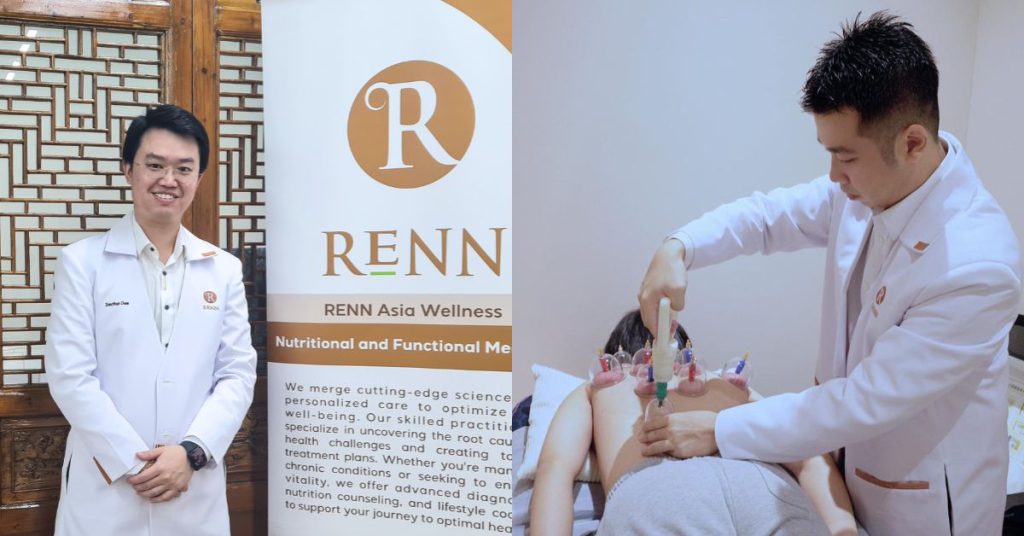
[Written in partnership with RENN Asia Wellness, but the editorial team had full control over the content.]
As a kid, I was familiar with natural and complementary medicines, particularly Traditional Chinese Medicine (TCM). If I pulled a muscle or had a persistent cramp, off to the TCM master’s house we would go.
However, growing up in this digital age, I’ve come across a lot of dubious and misleading information surrounding “alternative” medicine. Pseudoscience, if you will.
Things like celebrities’ “magic stickers” that send out “positive vibrations” or cancer-curing crystal water, or something else just as farcical.
Unfortunately, these sorts of practices have become associated with other complementary medicine practices that are much more evidence-based.
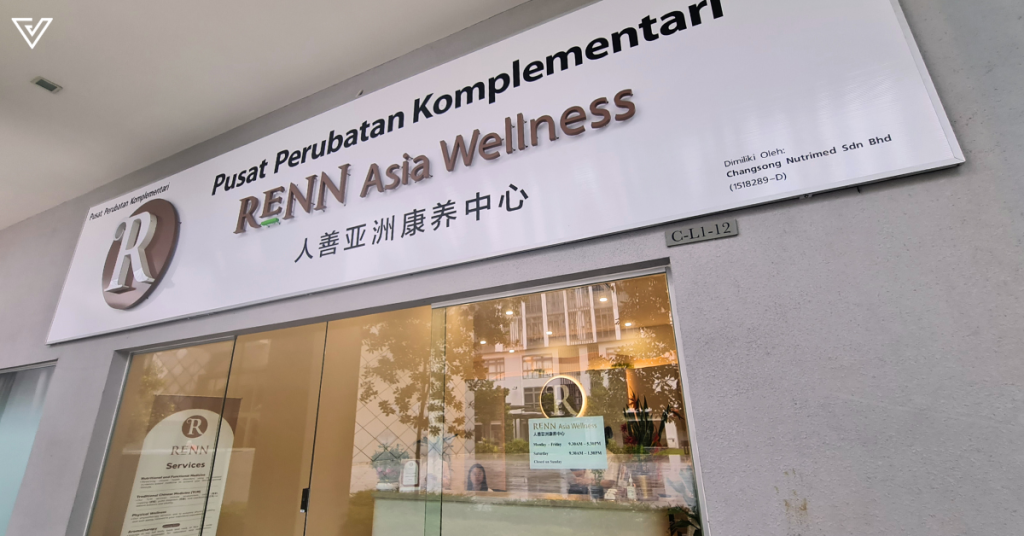
That’s why institutions such as RENN Asia Wellness have emphasised the importance of educating people on the reality of complementary medicine.
Visiting the centre for the first time, I also had a healthy dose of scepticism. Thankfully, the team there was open and willing to address these doubts.
Here are some misconceptions about the field that were debunked during my visit.
Misconception 1: Complementary medicine is not regulated
You might think that anyone can just start a practice and call it “complementary medicine.”
But there are actually many regulatory bodies that ensure complementary medicine providers are following specific laws and regulations.
The several regulations surrounding RENN Asia Wellness’ practice would include:
- The Traditional and Complementary Medicine (T&CM) Act 775
- Allied Health Professionals Act 2016 774
- Food Act 1983
- Control of Drugs and Cosmetics Regulations 1984
“Of all the regulations above, T&CM Act would be the main governing act for RENN Asia Wellness to follow,” said Jonathan Chew, the founder of RENN Asia.
That said, the T&CM Act is still fairly new in Malaysia, and the government has not fully enforced the entire regulation. It is currently in Phase 3.
Misconception 2: Practitioners are just quacks with no qualifications
But just because there are regulations doesn’t mean the practices actually work, though.
“One of the major misconceptions in Malaysia is that natural medicine is often suspected to be quackery, especially if it is touted as a ‘miracle cure’ by high-pressure salesmen with pure commercial interests,” Jonathan himself admitted.
The founder believes that certain MLM and direct-selling companies have been marketing their products using hard sales techniques, claiming that their products would do wonders.
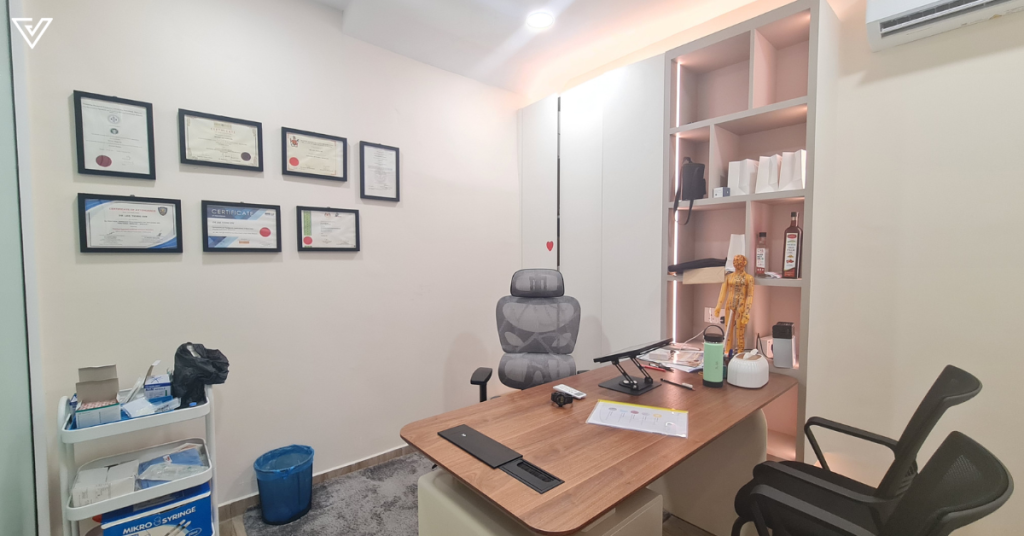
This has spoilt the market and good name of natural medicine for many decades.
“Of course, there are responsible direct-selling and MLM companies doing good work in educating people about traditional and complementary medicine too, but the delinquent few have created the misconceptions till this day,” he pointed out.
To quell these misconceptions, RENN Asia Wellness focuses on evidence-based practices and professionalism. Jonathan also believes that their results will speak for themselves.
Adding to that, RENN Asia ensures that all health practitioners are qualified academically and also hold active membership status with their respective governing professional bodies.
For those recognised practice areas, each health professional will have a registration number from the relevant council within the Ministry of Health. This will ensure that the health practitioners themselves are qualified in their area.
Misconception 3: Natural medicine lacks scientific backing
The belief that natural medicine lacks scientific backing is outdated and oversimplified.
“At RENN Asia Wellness, the modalities we employ are firmly rooted in evidence-based practices, blending modern research with time-tested wisdom,” Jonathan claimed. “Far from being pseudoscientific, natural medicine complements conventional approaches and plays a vital role in holistic healthcare.”
He explained that many modalities, such as nutritional therapy, Traditional Chinese Medicine (TCM), and physiotherapy, are supported by robust clinical research.
For example, acupuncture is validated for pain management (JAMA Internal Medicine, 2012), and omega-3 supplementation is proven to reduce inflammation (Circulation, 2019).
“Natural medicine complements conventional care, addressing root causes and improving patient outcomes. It is not pseudoscience but a scientifically validated, integral part of holistic healthcare,” he argued.
Misconception 4: Natural medicine is only for specific and minor ailments
To me, as legit as some natural or complementary medicine may be, a serious illness is still only treatable by conventional or “Western” medicine.
While it is true that conventional medicine is scientifically backed to address illnesses, Jonathan pointed out that holistic medicine addresses a wide range of health issues by focusing on root causes and treating the individual as a whole.
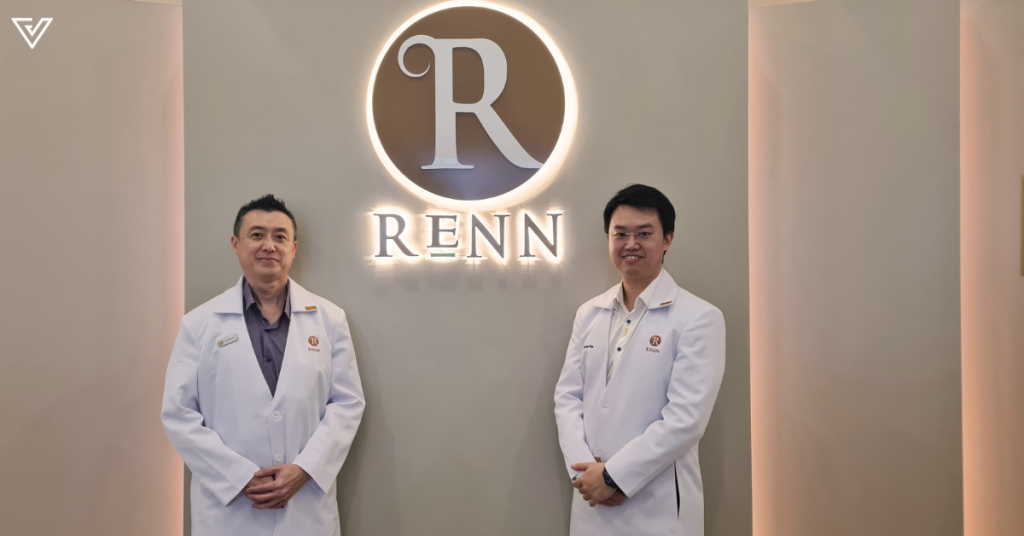
He elaborated, “It uses a multisystem approach, recognising the body’s interconnectedness, and emphasises prevention and optimisation of health.”
Specifically, it involves evidence-based therapies such as nutritional interventions, and herbal medicine.
Jonathan also argues that oftentimes, conventional drug medication usually does not solve or cure certain health disorders at their root. Rather, they tend to control or to manage symptoms, for example, cholesterol/sugar/high blood pressure.
In natural medicine, however, the doctrine is to address root causes, working towards a permanent solution for the client.
“At RENN Asia Wellness, our main focus is providing root-cause solutions rather than just symptomatic relief,” the founder reiterated.
But of course, symptomatic relief is still highly valuable in improving one’s quality of life.
Misconception 5: Complementary medicine is only good for older folks as youngsters don’t need it
Many practices in complementary medicine may seem like they’re designed for the older folk to remain “young.” However, that doesn’t mean that younger individuals cannot benefit from it.
In fact, waiting for the health disorder to worsen and manifest is a conquest that RENN Asia Wellness is fighting against.
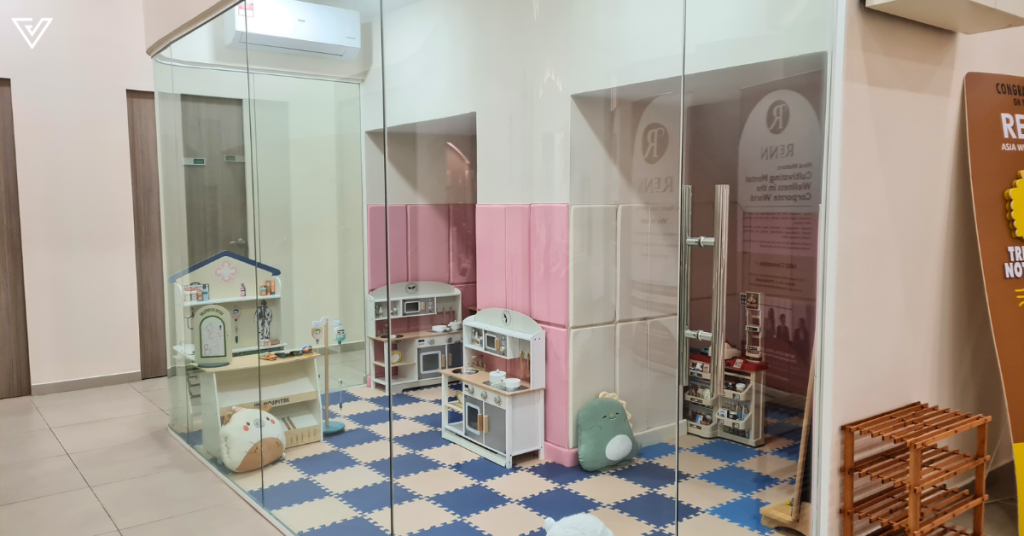
“Prevention is better than cure; this age-old wisdom statement is becoming more real in modern society, where common chronic health disorders are no longer a privilege of the elderly but also the younger generations,” Jonathan reminded.
Misconception 6: It’s only for the wealthy
Of course, it does seem like a good idea to get a head start on our health. The fact remains, though, that many of us may not have the money set aside for it.
In their effort to offer health sustainability, RENN Asia recognises that price is a huge factor.
To that end, Jonathan shared that RENN Asia strives to keep pricing competitive within the average range of the market, making it highly accessible to a wide range of clients while maintaining operational profitability.
“One of the advantages of complementary medicine is that the practice does not need to invest in high-tech equipment that will cost millions of dollars, which in return will be borne by the consumer,” he added.
Misconception 7: Complementary medicine goes against one another, as well as conventional medicine
“This is entirely a myth,” Jonathan said to the above. “The word ‘complementary’ means to complement any existing treatment.”
He shared that each medical modality—such as TCM or physiotherapy—has its own merits and demerits. Claiming which is superior isn’t helpful.
“True health comes from a holistic blend of natural, traditional, and conventional medicine,” he said. “By combining the best of each of these, only then can we provide the best care for every individual in society.”
With these misconceptions quelled, hopefully more will consider complementary medicine as a way to improve their wellbeing.
- Learn more about RENN Asia Wellness here.
- Read other articles we’ve written about Malaysian startups here.
Also Read: Inside the exclusive programme for startups by Grab Malaysia, GXBank leaders & Endeavor Malaysia
Featured Image Credit: Vulcan Post / RENN Asia Wellness via Islamic Tourism Month 2024
SaladStop! Group started out as a family biz, now it’s grown to 75 outlets in S’pore & beyond
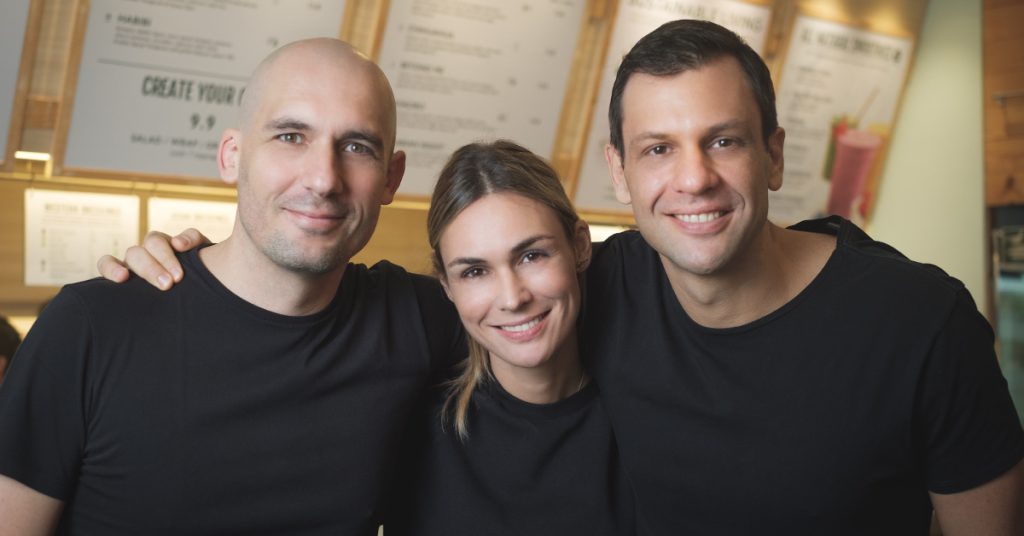
When Adrien Desbaillets co-founded SaladStop! together with his father in 2009, the duo pretty much seized a pivotal opportunity in Singapore’s F&B landscape.
Conversations around health and wellness were gaining traction at that time, but there was just one problem: Singaporeans simply did not have many choices.
“Options for healthy meals were few and far between—not just in hawker centres but across the city-state,” recalled Adrien.
Having grown in a “vegetarian vegan” household themselves, the duo decided to fill the gap by creating a healthy fast food chain—and today, their business has expanded to 75 outlets worldwide.
Here’s what it took to grow the family-run business into a global enterprise.
Timing is everything
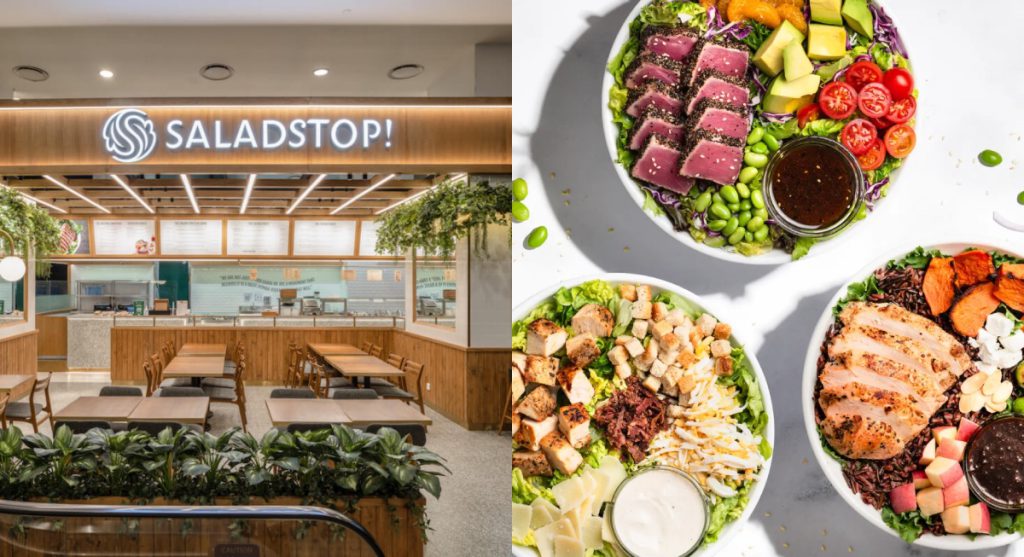
They say timing is everything—and the same holds true for starting a business.
Back in 2009, at the tail end of the financial crisis, conditions were ripe for entrepreneurship: rent were affordable, manpower was accessible, and the overall costs of running a business were generally lower.
When we first started [SaladStop!], we definitely saw a momentum in terms of the macroeconomic environment in Singapore.
I think things were sort of starting to look up again [after the financial crisis]. We felt that it was the right time to take on that segment of the market.
Adrien Desbaillets, co-founder of SaladStop! Group
As to how they’ve successfully expanded their presence globally, Adrien shared that they built SaladStop!’s concept “very much around a scalable model” right off the bat.
“We were very clear from the start that it had to be something that not only would get us to at least 10 to 15 stores in Singapore but would also be exportable—we went in with that mindset.”
Working “in the trenches”
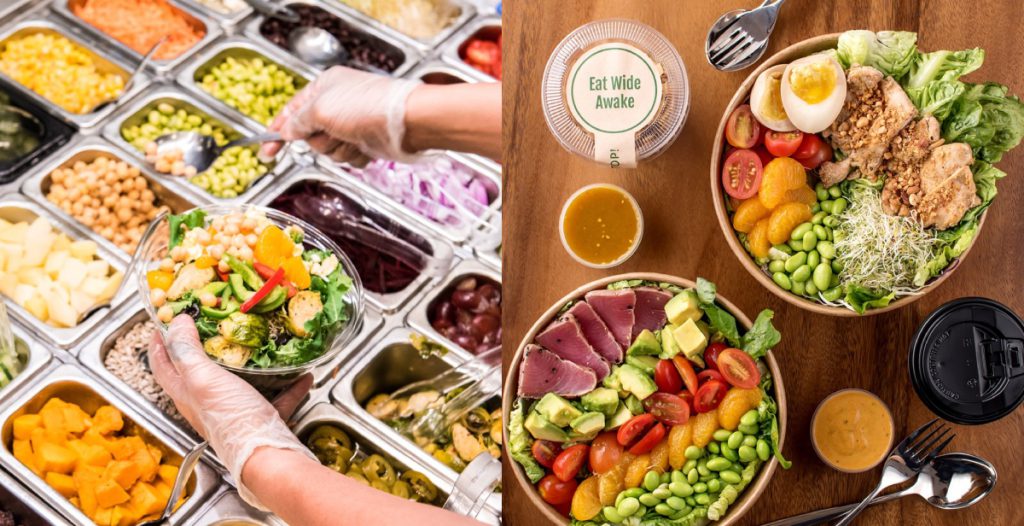
But having a well-thought-out business plan doesn’t mean the journey is without its challenges.
Though the business took off within the first few months of its launch, with the profits being re-invested to build more stores, operational challenges became more pronounced as they expanded.
Within a year, SaladStop! had five outlets, but maintaining consistency in processes and quality across all locations proved to be a significant hurdle. In fact, on one occasion, their salad dressings even varied in taste and appearance across their outlets despite using the same recipes.
We were growing so quickly that for the most part, we were running a business and building the SOPs at the same time.
The team that we had was very junior, and for us, a lot of time [was spent] putting out fires—a lot of it was just kind of in the trenches and working through it.
Adrien Desbaillets, co-founder of SaladStop! Group
As a result, the business doubled down on its efforts to refine processes, investing in central kitchens as it scaled. “Things finally started falling into place as we pushed towards 10 locations,” he added.
Finding the right partner
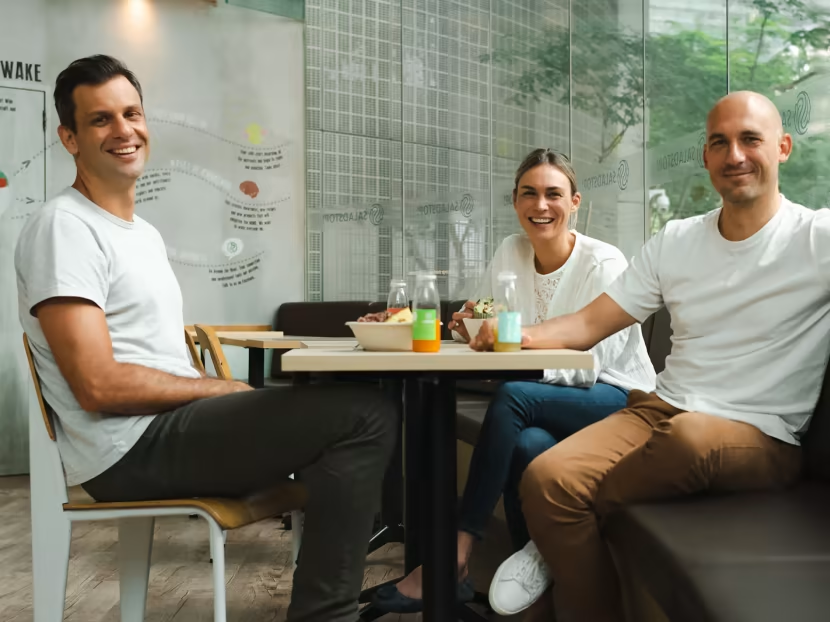
Two years after the brand’s launch, Adrien’s sister Katherine joined the family business, followed by her husband Frantz Braha a few years later. Together, they’ve played a pivotal role in driving the business’s expansion across various markets.
December 2014 was when SaladStop! first launched beyond Singapore, entering a market that Adrien noted many wouldn’t typically consider: the Philippines.
A lot of people would have assumed it would have been better to launch in more mature markets like Hong Kong or Australia.
But for us, it was a matter of finding the right partner—a strong operator who understands the city that they operate in and would be able to effectively execute our brand and systems on the ground.
Adrien Desbaillets, co-founder of SaladStop! Group

And that’s precisely what led to their growth in the country.
Adrien explained that, 10 years ago, the country had virtually no healthy food options. “At least Singapore had some options, but in the Philippines, there was literally nothing,” he shared.
“Our partner saw a huge opportunity in the market, and for us, we were fortunate enough to collaborate with a larger player who took a chance on SaladStop!.”
Today, the Philippines stands as one of SaladStop!’s largest markets, boasting over 20 outlets nationwide. The brand is also present in other key markets, including Indonesia, Thailand, and South Korea.
Adrien hopes to expand similarly in other Southeast Asian markets. “We believe that there’s an opportunity for [healthy food] in every market—it’s just about getting the timing right and finding the right partner.”
Building a multi-brand portfolio
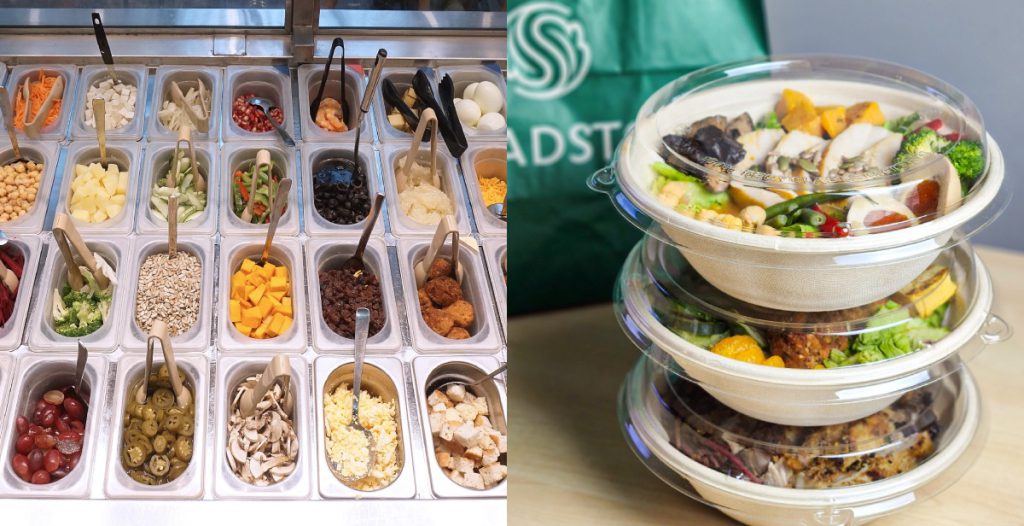
By 2018, SaladStop! had established a presence in about eight markets. As they grew, Adrien and his family identified further opportunities within the healthy eating space, particularly in secondary cities and underserved areas of Southeast Asian capital cities.
To capitalise on them, they launched two new concepts: Heybo, which offers warm grain and rice bowls infused with local flavours, and Wooshi, a DIY maki roll brand.
“These brands are designed to expand beyond SaladStop!’s reach,” Adrien shared in a 2022 interview with CNA.
SaladStop! works well in places like Jakarta, Bali, and Ho Chi Minh City, but in cities like Surabaya and Medan, for example, it’s more challenging.
Our goal is to go deeper into these markets, and for that, we need different brands.
Adrien Desbaillets, co-founder of SaladStop! Group
“We see huge opportunities outside of Singapore”
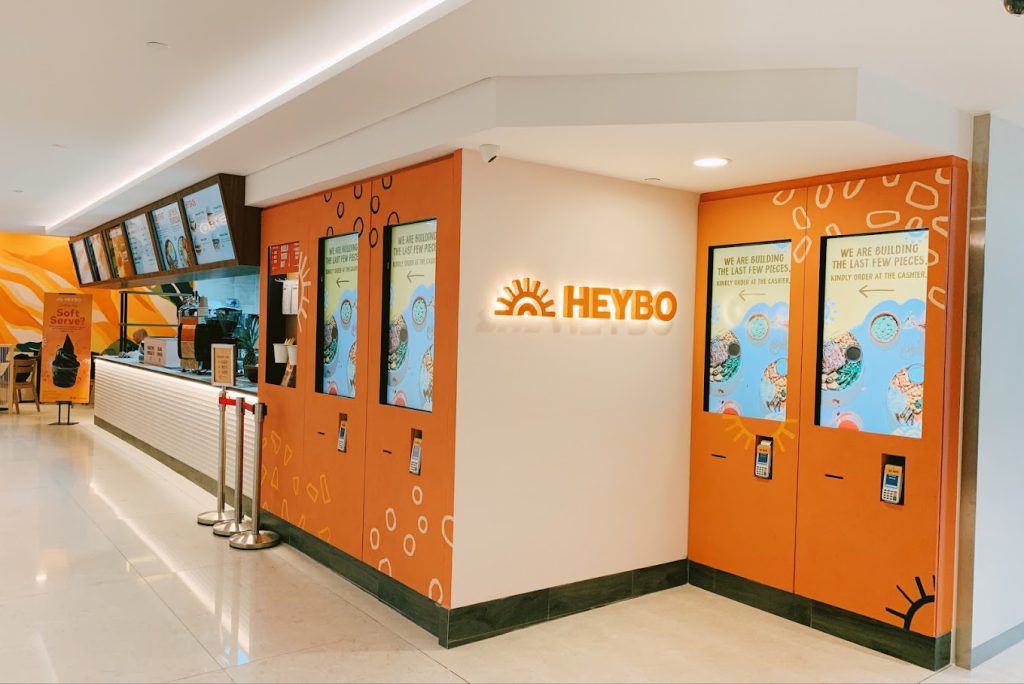
Looking ahead, Adrien anticipates significant growth emerging from new markets—and while he still expects some continued growth in Singapore, he believes it will be at a “much slower pace” compared to other regions.
For us, 2025 will very much be centred around launching in new cities and expanding our footprint. We see huge opportunities outside [of Singapore] that we’re yet to tackle, so that’s the primary focus for us.
Adrien Desbaillets, co-founder of SaladStop! Group
He is also confident that Heybo will become the company’s major growth driver. “We’ve seen demand in cooler climates like Hong Kong, Japan, and Korea, where warm meals are key—Heybo fills that gap.”
“You might see some offshoots or virtual brands in areas where we see little pockets of opportunities, but our core focus still remains on our three brands.”
- Find out more about SaladStop! here.
- Read other articles we’ve written about Singaporean startups here.
Also Read: Spotting a gap in Malay cuisine, this S’porean family started a restaurant serving halal wine
Featured Image Credit: SaladStop!